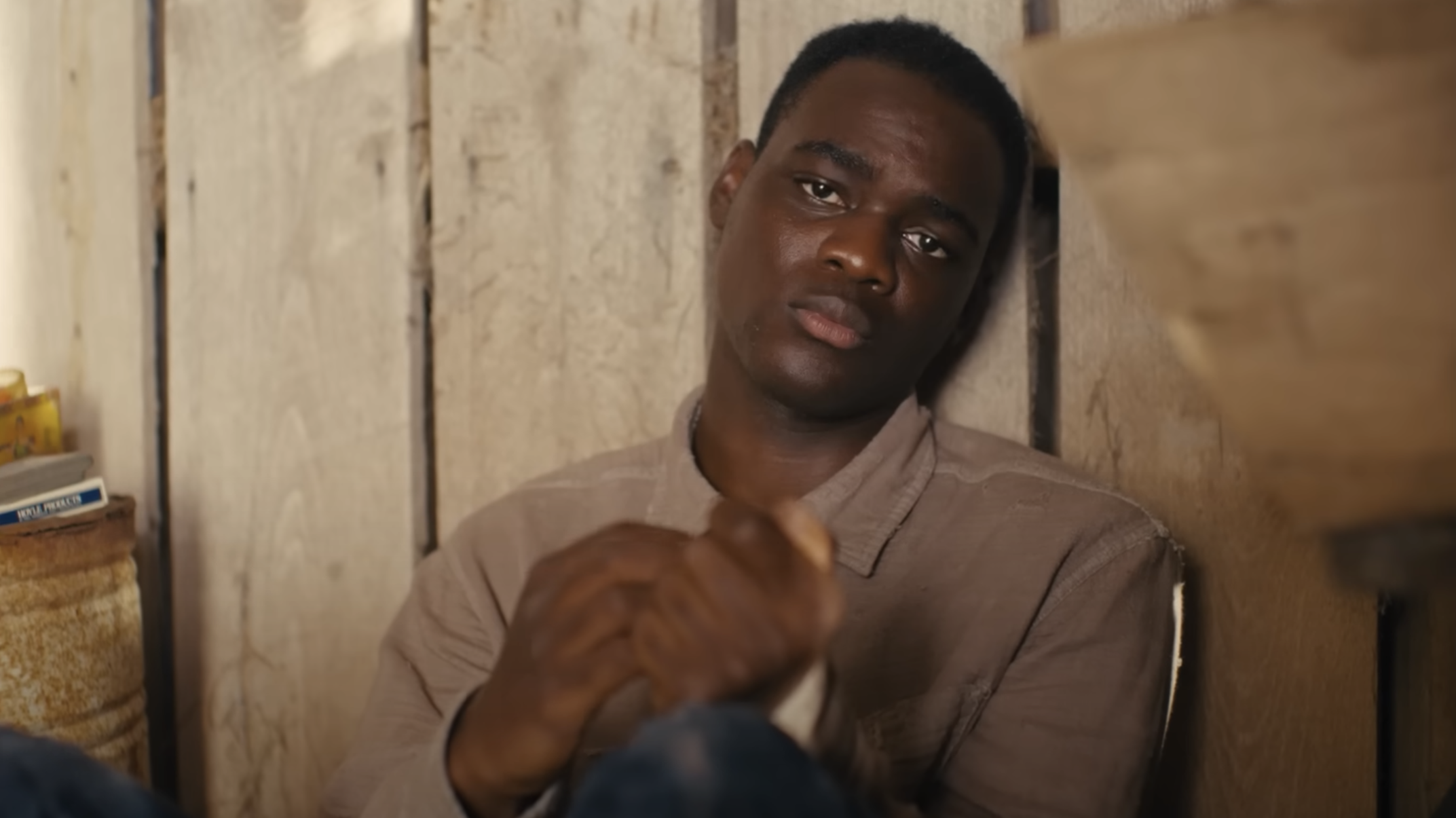With “Nickel Boys,” filmmaker RaMell Ross delivers one of the most powerful films of the year — a haunting journey into a brutal reform school in the Jim Crow South.
A movie shot in first person sounds like a gimmick. Part of the magic of filmed storytelling is accepting that something can be from someone’s point of view and yet also from a distance. Using the camera as a character’s actual eyes is the domain of university students and niche experimental filmmakers. In a commercial film, it’s to be deployed only in very limited doses.
And yet, with “Nickel Boys,” filmmaker RaMell Ross not only commits to the idea but delivers one of the most powerful films of the year in the process — a lyrical, heartbreaking and haunting journey into the darkness of a brutal reform school in the Jim Crow South.
Ross and co-writer Joslyn Barnes weren’t working from scratch, but Colson Whitehead’s Pulitzer-winning novel about two teenage boys, Elwood and Turner, who become friends while wards of a juvenile reform school in Florida. It’s called the Nickel Academy in the novel and the film, which is fiction, but based on the horrific abuses at the very real Dozier School for Boys in the Florida panhandle, where boys were beaten, raped and killed. Some of the bodies were shipped back to their homes. Others were buried in unmarked graves that only have recently come to light.
The haunting truth of the broader picture, the all-too-recent displays of inhumanity and racism, looms over every frame. “Nickel Boys” is not exploitation porn, however. In fact, when one brutal beating does happen, Ross directs his gaze elsewhere: A wall, a shoe, a nervous hand, the corner of a bible. The sounds from the other room, the cracking of the whip and the grunts are undeniable. As in “The Zone of Interest,” we don’t need to see it to feel its impact.
This is more of a memory piece than anything else, a reconciling of unspeakable traumas and human resilience through the eyes of two boys. Elwood (Ethan Herisse) is our way in. We see his youth in Tallahassee, growing up with his grandmother Hattie (an especially impactful Aunjanue Ellis-Taylor) who is as playful as she is protective of this young boy who has only her. He’s smart and attuned to the civil rights movement at large, listening in on the Rev. Martin Luther King Jr.’s speeches and impressing his teachers, one of whom recommends him for classes at a technical college. He hitches a ride on his way with a man in a slick suit and car, not knowing that it was stolen. When the man is caught Elwood, the innocent, gets sent to Nickel.
“You’re lucky to be in Nickel,” a younger white employee (Fred Hechinger) says to Elwood early on. He’s just received his draft notice and might even really believe it. While he seems like perhaps he’s more friend than jailor, his truest nature will be revealed down the line. Others are more sniveling and obvious, like Hamish Linklater as the school’s administrator who is more than ready to dole out violent punishments with his own hands.
It’s not all Black kids in Nickel, but there’s a segregated hierarchy with the students, one that’s neatly tucked away when inspectors come to the grounds as the employees and administrators scurry to present a good face. Even they knew that their practices are something to be ashamed of.
Perhaps the most striking aspect of the first-person camera is its attention to details. It’s not acting like a camera, but a person who doesn’t always see everything “important.” Sometimes it’s one’s own hand, sometimes shoes, tattered shirts, darkness, or a puff of smoke.
And while we’d gotten glimpses of Elwood before, in a camera booth with a girlfriend, the first time we really see him is through Turner (Brandon Wilson) one fateful day in the cafeteria. Turner is laid back and a little world-weary, an orphan and a realist counterpart to Elwood’s hopeful idealism. Though opposite in sensibility, these two stick together, finding light and joy even in their hellish surroundings. The camera even starts to shift between them — when they’re looking at one another, they’re also looking through the lens, at us. There are also flashes forward to a man at a computer (Daveed Diggs ), seen mostly from behind, reading about the discoveries of unmarked graves on the grounds.
The threads do come together, but it requires a bit of patience and giving yourself over to the film, which is both formally and emotionally eye-opening. Adapting great literature can sometimes send filmmakers running towards the conventional; Thank goodness Ross charted his own path instead.
“Nickel Boys,” an Amazon MGM release in limited theaters Friday, is rated PG-13 by the Motion Picture Association of America for “violent content, some strong language, racial slurs, smoking, racism and thematic material.” Running time: 140 minutes. Four stars out of four.
More About:Film Entertainment
By TheGrio
By TheGrio
By TheGrio
By Chip Chick
By TheMix.net
By Chip Chick
Weekly New Episodes
Stream Now

